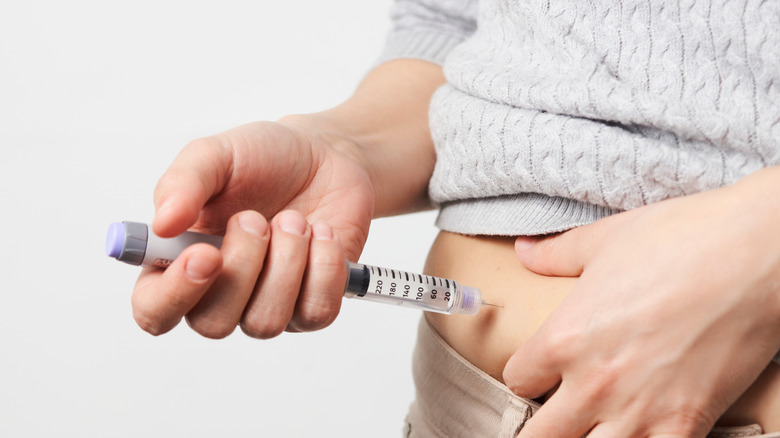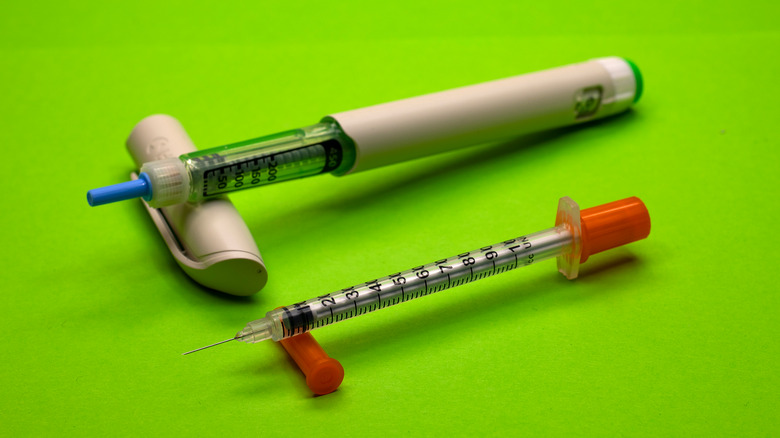The Real Reason Not Everyone Can Produce Insulin
According to the American Diabetes Association, diabetes affects more than 10% of Americans, with this percentage increasing to nearly 27% for people over the age of 65. It was among the top ten causes of death among Americans in 2017, being mentioned in 270,702 death certificates.
If a person has diabetes, their body struggles to either produce or use insulin, which is a hormone that enables the cells in your body to absorb glucose (sugar) and use it for energy. Insulin ensures that glucose is only used in healthy amounts, with excess glucose being stored in the liver until your body needs it (per Healthline).
According to the Yale University School of Medicine, people with type 1 diabetes are unable to produce insulin because their immune systems destroy their body's insulin-producing beta cells. Type 1 diabetes typically develops in young people. Meanwhile, type 2 diabetes generally develops later in life. Type 2 diabetes occurs when a person's body resists the effects of insulin and therefore produces more insulin to achieve the same functions, leading the body's insulin-producing cells to eventually burn out (via Healthline).
These are some reasons why a person might develop insulin resistance
Type 1 diabetes is a bit mysterious, but experts generally believe that it is caused by genetic factors. According to the Centers for Disease Control and Prevention (CDC), people are more likely to develop type 1 diabetes if they have a parent or sibling with the condition. The National Institute of Diabetes and Digestive and Kidney Diseases (NIDDK) adds that type 1 diabetes can be triggered by viruses.
Potential causes for type 2 diabetes are a bit more straightforward. According to the NIDDK, being sedentary or overweight can lead to insulin resistance. This is especially the case if a person stores more fat in the belly. People with non-alcoholic fatty liver disease may also be at greater risk of developing type 2 diabetes. Type 2 diabetes also has a genetic component, and while we cannot change our genetics, the CDC recommends taking other steps to reduce your risk of type 2 diabetes, such as exercising and eating a healthy diet.


